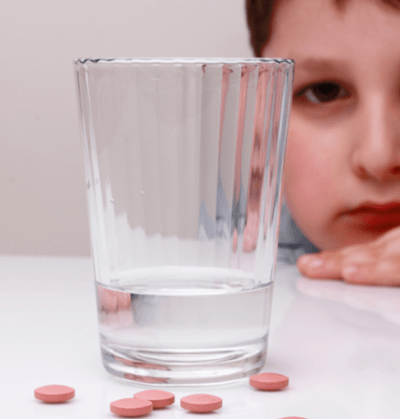This is the medical justification for neurofeedback treatment for ADD/ADHD.
With ADD/ADHD there are potentially very negative risks from not seeking treatment, including continued inattentiveness that may seriously compromise academic achievement and preparation for future career choices, greater likelihood of dropping out of school (32-40%), to rarely complete college (5-10%), have few or no friends (50-70%), to under perform at work (70-80%), to engage in antisocial activities (40-50%), to experience teen pregnancy (40%) and sexually transmitted diseases (16%), to experience depression (20-30%), have low self-esteem, engage in impulsive behavior and have problems completing tasks that may harm future relationships, have greater risk of speeding and having multiple car accidents, and greater risk for tobacco or substance abuse, and have personality disorders (18-25%). There is also a higher incidence of suicide among ADD/ADHD adolescents, and a higher incidence of incarceration for criminal activity in adolescents and adults.
In many instances with ADD/ADHD, medications (e.g., ritalin, dexedrine) seem to make a significant difference in alertness and impulsive, hyperactive behavior, although the effects do not persist if medication does not continue to be taken. In some instances, however, such medications also have risks and side effects. One study showed, for instance, that 69% of children on ritalin or other stimulants suffered from one or more side effects (e.g., headaches, anorexia, vomiting, sleep disturbances, mood changes, “zombie-like” emotion-less behavior, gastroinestinal disturbances, tic disorders, urinary problems, seizure disorders). Some individuals are also of the opinion that there is a potential for abuse or dependency. A massive literature review also found that medications did nothing or produced an adverse response for at least 25% of children with ADD/ADHD. A recent, thorough review of studies on stimulant treatment with this problem found that they provided “temporary improvement,” but “on the other hand, changes that point toward longer-term improvement (e.g., in academic outcome, antisocial behavior, or arrest rate) were not found, and only small effects were observed on learning and achievement.” The average length of follow-up studies on ADD/ADHD drugs in children is only 3 weeks long. A Council on Scientific Affairs report from the American Medical Association concluded in 1998 that pharmacotherapy alone, while effective in short-term symptomatic improvement, “has not yet been shown to improve the long-term outcome for any domain of functioning (classroom behavior, learning, impulsivity, etc.).” In comparison to neurofeedback, a meta-analyhsis (Schachter, Pham, King, Langford, & Hoher, 2001) of randomized controlled studies of medication treatment for ADD/ADHD concluded that the studies were of poor quality, had a strong publication bias (meaning that drug company funded studies which failed to support the effectiveness of their product tended to never be submitted for publication), and often produced side effects. They concluded that long-term effects (beyond placebo effects) for longer than a 4 week follow-up period were not demonstrated. A recent comprehensive review (Drug Effectiveness Review Project, 2005) of medication treatment for ADD/ADHD concluded that there was no evidence on the long-term safety of the medications and that good quality evidence is lacking that drug treatment improves academic performance or risky behaviors on a long term basis, or in adolescents or adults. In relation to the findings of this review, one of the latest studies (El-Zein, Abdel-Rahman, Hay, Lopez, Bondy, Morris, & Legator, 2005) concluded that “the lack of research on long-term effects of methylphenidate [Ritalin] use in humans warrants great concern” (p. 7) because they discovered that after only 3 months on Ritalin, 100% of children experienced chromosomal aberrations which could increase cancer risk, not unlike the genetic damage that has been found in adult methamphetamine users (Li, Hu, Chen, & Lin, 2003). In light of these findings, neurofeedback provides an important, non-invasive, and relatively side effect free treatment alternative for ADD/ADHD.
Therefore, given the risks, side effects, and safety risks with medication treatment for ADD/ADHD, neurofeedback offers an excellent alternative, and what was documented above clearly shows there is a medical necessity.
